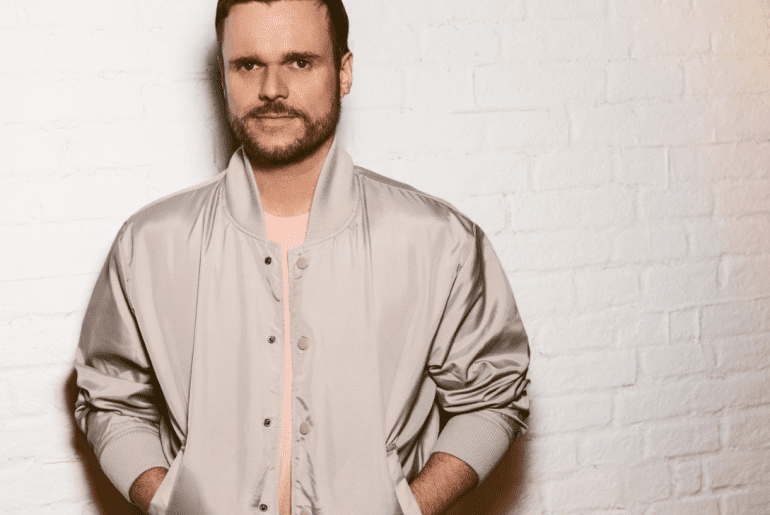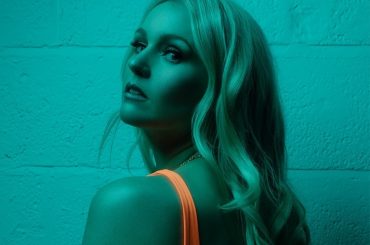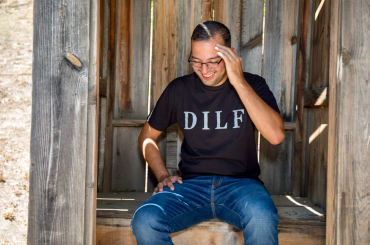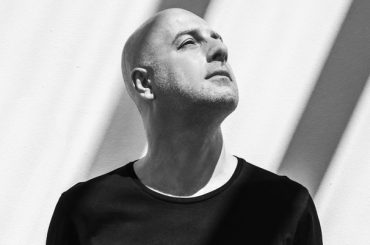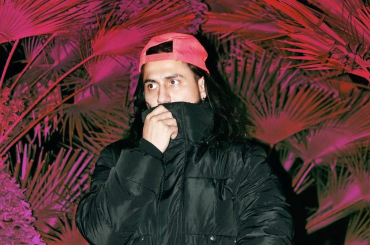For all its hustle, Los Angeles is permanently covered with a blanket of nostalgia.
This is best experienced through music. It’s in the numerous oldies radio stations that soundtrack the drives that never seem to end. It’s in the elevators of office and medical buildings. It’s in the songs piped into department and grocery stores.
For the five years that Marco Niemerski (aka Tensnake) lived in Los Angeles, this nostalgia matched up perfectly with the mood he was inadvertently capturing on his second studio album, aptly titled L.A.
“There is magic to the city,” says Niemerski, who has since returned to his native Germany and resides in his hometown of Hamburg. “I constantly felt like I was in a movie. What’s holding the songs on the album together is my time in L.A. It’s a chronological journey. It took me a while, but I really fell in love. It’s the best city in the world. It was a fantastic experience. I’m more excited to go back to L.A. on holiday and enjoy it as a tourist who knows the city a little bit.”
The album got started in 2017, about halfway through Tensnake’s time in Los Angeles. Having moved around a few times, he left his outboard gear in Germany and worked wholly in the box for L.A. Furthermore, his studio space was not acoustically treated and he didn’t even have a selection of microphones through which he recorded the myriad of vocalists on the album. Besides the wonderful Fiora, who appears frequently on his debut album, Glow, L.A. also features the instantly recognizable voice of Boy Matthews (Duke Dumont’s “Ocean Drive” and “Duality”), Cara Melín’s Michael Jackson-meets-Bruno Mars tones and the warm and soulful Daramola, among others.
“I worked with whatever I had, sometimes we even recorded on an iPhone,” says Niemerski, whose DAWs include Ableton Live and PreSonus Studio One. “For processing, I mostly use Universal Audio plug-ins. I also used the Manley VOXBOX Channel Strip [all-tube vocal processor], which as a pre amp, EQ and compressor. For Boy Matthews on ‘Somebody Else,’ I used a Gefell microphone. No fancy setup, not even a pre-amp, straight into my Apollo 8. We were going to re-record it later, but as is very often the case, the first take was the best so we kept that one.
“I used to think you needed super-fancy gear,” he continues. “But some of my most successful songs I did on lo-fi cheap equipment. It’s really about creativity. I’m also not a big fan of being in a hired studio with an engineer. I prefer to do everything at home.”
There is a very intentional pop bent to L.A., a noticeable shift away from the disco/house vibe of Glow. While the songs have a modern sheen to them, the album’s overall style is more rooted in ’80s pop and R&B. This is exemplified in the fresh cover of the Pointer Sisters’ “Automatic,” in the slick feel of “Antibodies” and the smooth grooves of “Night Shift.” Not only was L.A. not created with the dancefloor in mind, but Tensnake wouldn’t play any of its songs in their album form in his DJ sets.
“Album Tensnake and DJ Tensnake are different,” says Niemerski, whose DJ set-up is simple and flexible with any Pioneer DJ gear. “The album is way too pop for my DJ sets. There was no point testing the songs on the dancefloor when I was making them. They’re for listening at home or your car or at the beach or walking to work or on your phone, not for the club. My remixes are mostly four-to-the-floor. I could play those in my sets.”
Remixes are a large part of the Tensnake catalog with high-profile efforts for the likes of Lana del Rey and Dua Lipa being particularly notable. He did 12 of them last year and this year, he’s done six so far. These have paid off during the lull in DJ dates, as Tensnake is ticking over with income from streams of his original production and remix fees. But he’s not in a rush to put himself in the live-stream space, having only participated in Insomniac’s Secret Project so far.
“The first single from the album [‘Automatic’] came out and everything got cancelled,” says Niemerski. “DJ streams popped up left and right and I didn’t want to do them. I’m not judging anybody for doing it, it just wasn’t right for me. If people can see you every day for free, how do you get back to your regular fees when this is over? For others, it’s so people don’t forget about you and you get more follows. I don’t have a clear concept yet, but I have a feeling DJing might change.
“In my ideal world, I hope parties go back to where they were 10 to 15 years ago before everything got so massive and crazy and DJs became superstars. For me, it’s more fun to play those parties. If I can find a way to make a living through producing and writing music and releasing it and doing very picky smaller gigs here and there [at a reduced rate], I wouldn’t be mad about it.”
To check out more interviews, click here.


